
In 2012, Jonny – who had been helping on Fen Farm since the age of three – was barely breaking even. He was working 90-hour weeks tending his herd of 260 Holsteins, and the milk price was ‘diabolically low’. Something needed to shift. Jonny and his partner Dulcie began selling fresh, unpasteurised milk from an old glass fish and chip fridge in an unstaffed honesty shed, for a much higher price than their buyer/processor was paying. Here began a journey into quality over quantity, resulting in them mastering a British version of the acclaimed Brie de Meaux – Baron Bigod. They still have a contract with a major milk processor, but sell their homemade, high quality cheese directly.
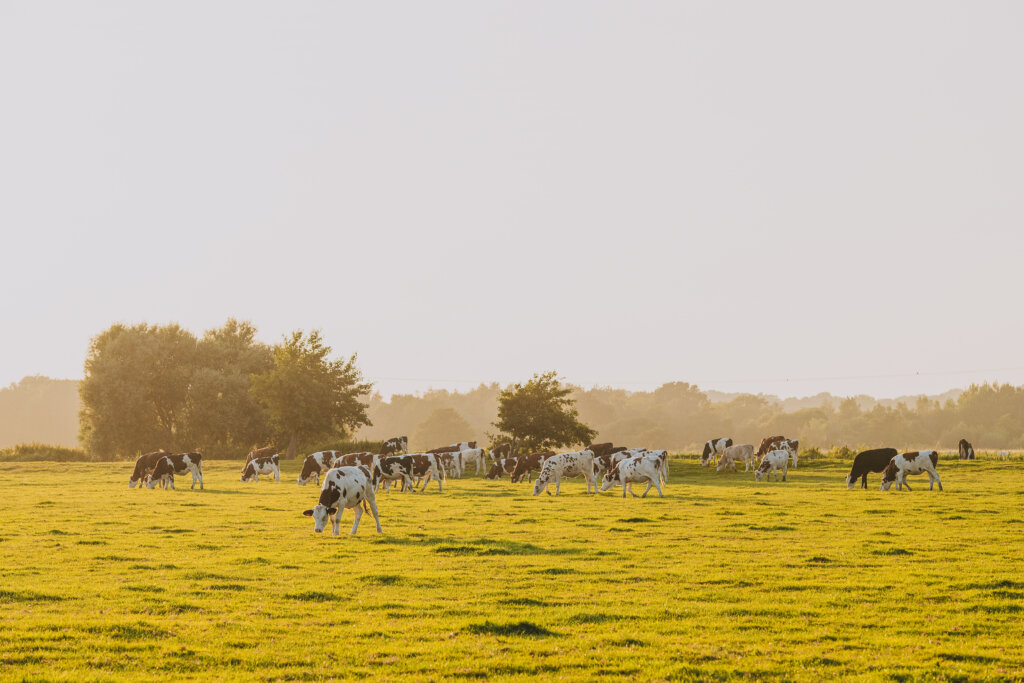
What did you want to change about the way you farmed, and why?
Primarily having control over the prices we charge for the products we make. We started with an honesty box and selling raw milk. Before we shifted to direct selling, I was so frustrated with the milk price – always feeling like we were not being fairly treated as dairy farmers. We were always the ones that had to take the crap, yet we’re the ones working with things that we can’t control – the weather, the animals – it is challenging! So, we wanted to have control over the price of the product and to have a say on what we make. Farmers generally make income from selling a commodity product – what you produce has no name, no identity, it is just a commodity. If there is too much of it produced in the world the price goes down. If there is a scarcity the price goes up. Farmers are the ones taking all the risk and doing a lot of hard work to make things happen, yet we have no say on the price. With beef and corn there is more opportunity to sell at the right time but with milk you are stuck in a contract and told the price you will get. It is very restrictive.
What was the biggest barrier to change?
Going into the unknown. This was a big project that had not been done before. There was a big cost, and big worries about whether it would work out.
How did you overcome this barrier?
The beauty of what we did was starting with a very small thing, then growing it bigger. At every step we asked, ‘what is the worst-case scenario?’ At first, we built a garden shed and started selling milk out of it. Worst case scenario, if it didn’t work out, I would store my garden tools in it. The next step was to invest a quarter of a million in the cheese making infrastructure and equipment. The worst-case scenario then was that if we could not make good cheese, we could still rent out the building to someone else who could. It doesn’t feel so bad if you take it step by step. You have to think it through and ask – can we still survive if this doesn’t work? We decided it was not a bad thing to gamble on. It’s easy to let things whirl around your mind and talk yourself out of things. But if you write down the pros and the cons, and assess it that way, it feels manageable. It is important to recognize what you are not good at, and get advice from others. It was not going to be enough to just make the cheese, we would also have to sell it.
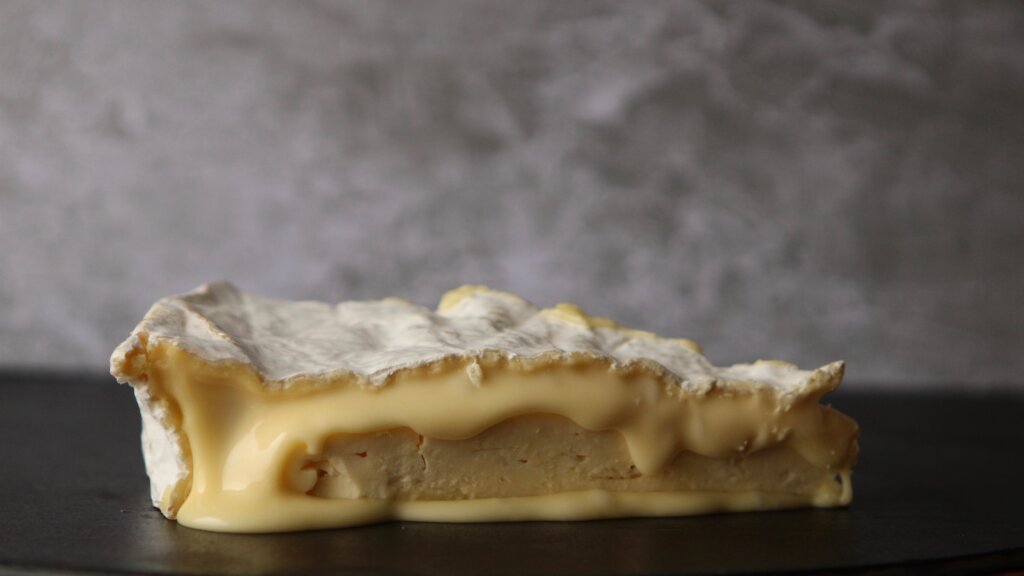
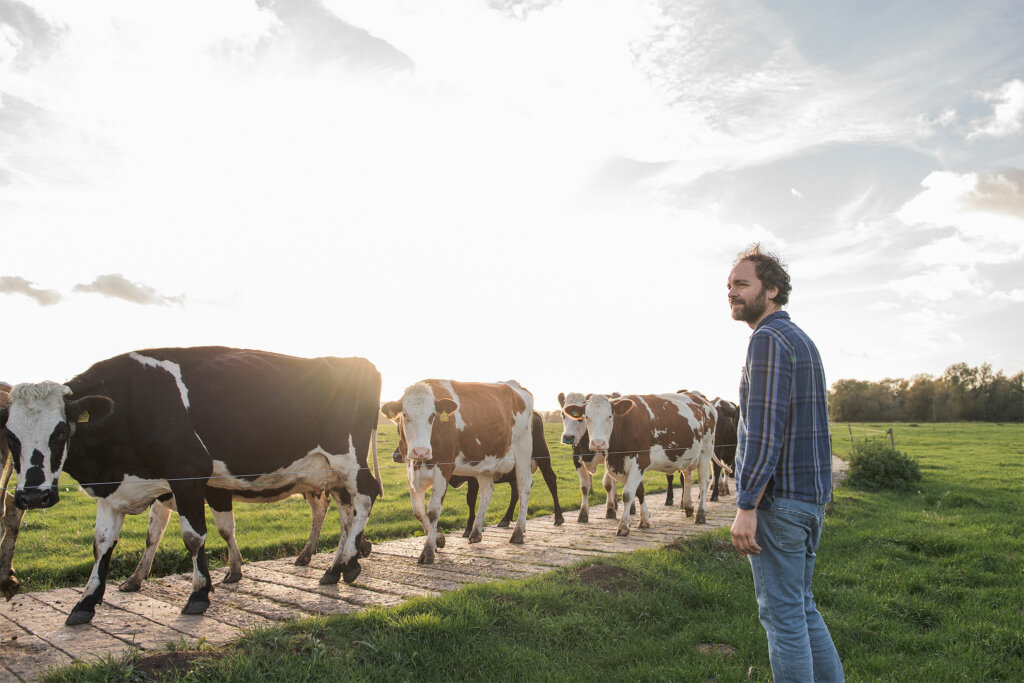
Who or what was necessary in supporting your shift?
When we first investigated cheese making, we searched on the internet and found a grant available at the time which gave 40% of what we had to spend to get it going.
Further down the line we recognised that there were certain things that we were doing but we weren’t very good at. So, we decided to ask for help from people who were good at doing those things. We worked with a business coach who had experience in growing food businesses. And bit by bit, questioning everything about the whole business, we moved forward. Everything, including your skill set, must grow at the same time as the business grows.
We found it was better to work with wholesalers, rather than putting a lot of time into small orders. We learnt to be realistic, that the type of cheese we were going to make could never be priced at the same point as Cathedral City or Somerset brie. Ours is a speciality cheese and has to be priced accordingly. So then what sort of customer wants that sort of cheese? What sort of branding appeals to that sort of customer? You have to tap into the zone of the sort of customer that you want to attract.
What are the benefits of your new set-up?
We found the right style to create the sort of vibe that our target customer is looking for. We have created a brand, and brands tend to help to form cushion from the ups and downs of the economy. If you do it wisely, the brand represents the quality of the product and people recognize it and trust that it will deliver the quality they want. That helps carry you through the good times and the bad times a little easier.
Half the site now is used for food production and office space and the other half is the farm. We developed a basic system where the natural, free heat of the cow muck is used to pre-heat the water for cleaning the sheds. We wanted to reduce our electricity use and looked around for a source of heat that we could utilise. W The muck is 40 degrees. We want to get it to 80 degrees, and the muck can take you half the way there. We estimate it saves us about £2.5k per year. We entered this innovation into a sustainability competition and ended up winning an award and getting prize money which provided £6k, which paid for the whole system! This is a basic system; we have shared details on our YouTube channel to help others who would like to do it too. If you have any sort of farming system that creates heat (livestock mainly) you can harness that. There is something wrong when we are burning oil and gas to heat water when there are sources of heat everywhere.
We asked people what brought them to the farm and why they liked to visit. They said they like to see the cows and feel good about supporting local farmers, and they think the milk tastes better. You have to think, as a customer, what do you want to see, and how do you want to feel about buying from this farm? It’s obvious. People don’t want to see worn out cows pushed to overproduce milk and fed on things flown in from all over the world. We try to create something that looks like what the consumer would want to see. We try to produce as much as possible from the farm itself, we don’t spray stuff, we try to provide good habitats for nature. People don’t mind if you don’t get everything right all the time, if you have enough in the ‘trust bank’. The product is consistent and the story of the farm is good, so we are forgiven if we do get things wrong sometimes.
When it comes to feed, we aim for as much as possible to be grown on the farm and are importing less year on year. We are not going cold turkey on this but are cutting back on buying stuff such as fertilisers. We’re also buying more land locally to try to be in control of what we feed our cows. It is a gradual move in the right direction. So much in terms of carbon reduction is just basic common sense. If you can have a cow that can go out the back and eat the grass, and fertilise the land, that is going to be better than flying feed in from South America.
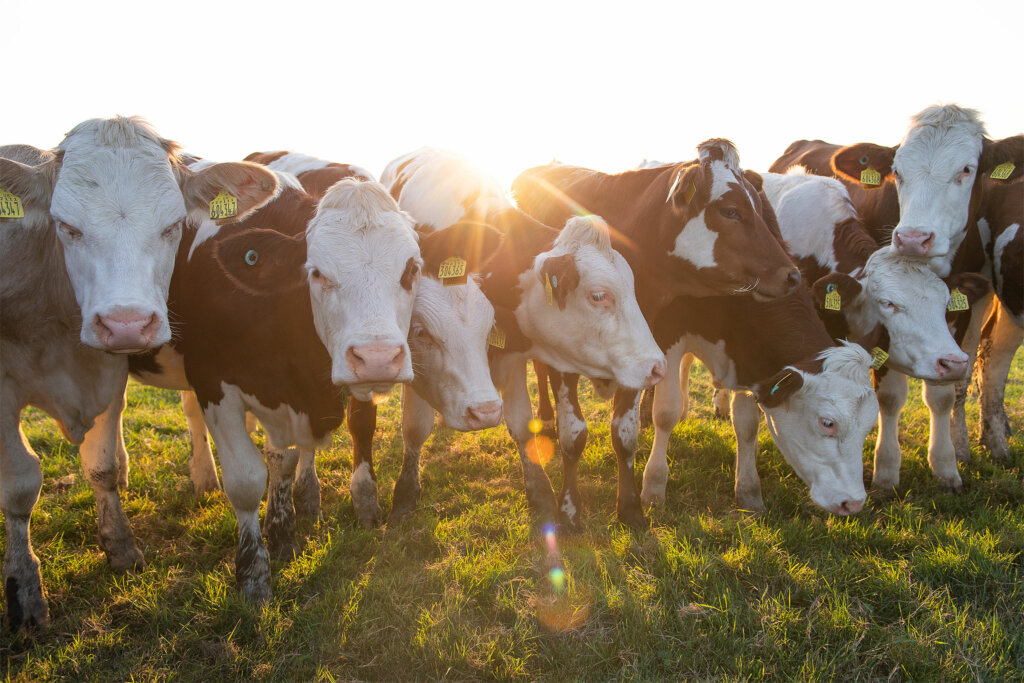
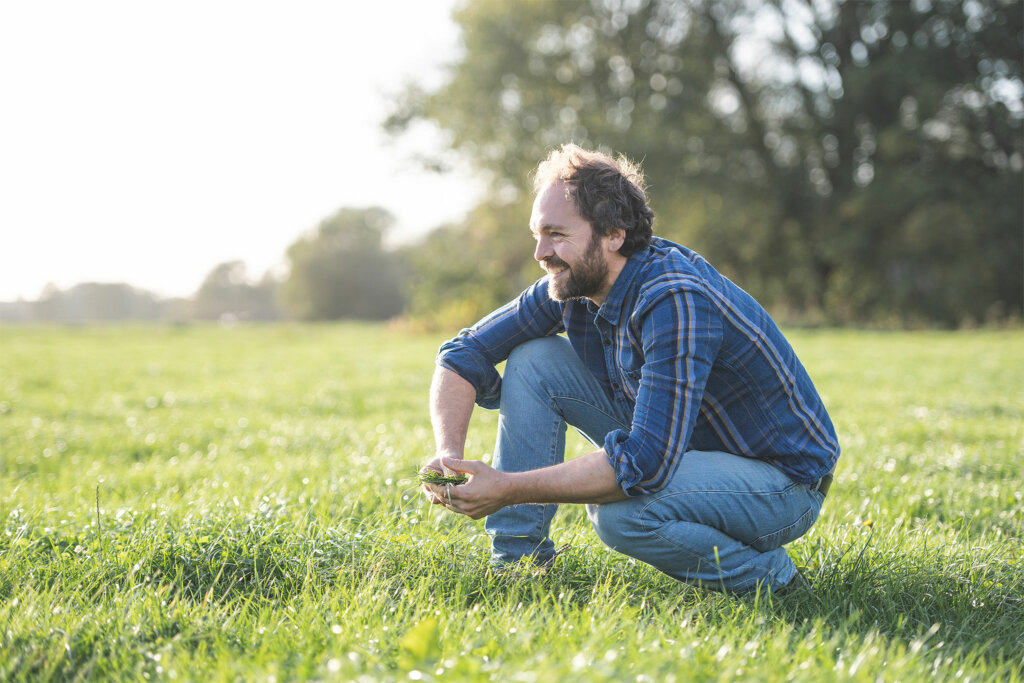
What’s the best advice you could give to a farmer on a similar journey?
Often farmers don’t realise their potential from capital investment. They are cash poor but asset rich. Look at everything around you and use imagination. If you build it, people will come! Another thing farmers don’t do enough of is to get out and about. Coming across ideas from other places is so important. Or if you can’t get off farm, just Googling ‘farmers who have diversified well’, and look at what is happening in other countries like Canada, Australia, South Africa, places with a similar kind of customer base as a UK customer. Farmers don’t realise how many things they can do. Have you got a field near a roundabout? Put a shop on it. A field with a view? A river? A woodland? People love different and quirky experiences. A cabin or a burger van to sell beef direct, for example. Make it pretty. Put up some solar fairy lights. Make a path, make it nice. We are on the edge of Bungay which has a population of 6-7k. We have a shop with an honesty box and a touch screen payment system which we put in 12 years ago. It brings in £350k each year. It is essentially a garden shed with lots of lovely products in it.
The best advice really is to get away from the farm for a few days. The best thing you can do is go for a drive or a walk – it helps generate new ideas, gives the feeling of moving forward. Subconsciously the brain is doing the work while you are moving forward. Being in motion has a positive feel. You have to get away from the day-to-day stuff now and then. Look around and be conscious of the things you see. See the opportunities. If you see something working really well, ask yourself, ‘Why are people queuing at that particular restaurant?’ Delve into it and start to learn from the things that are working.